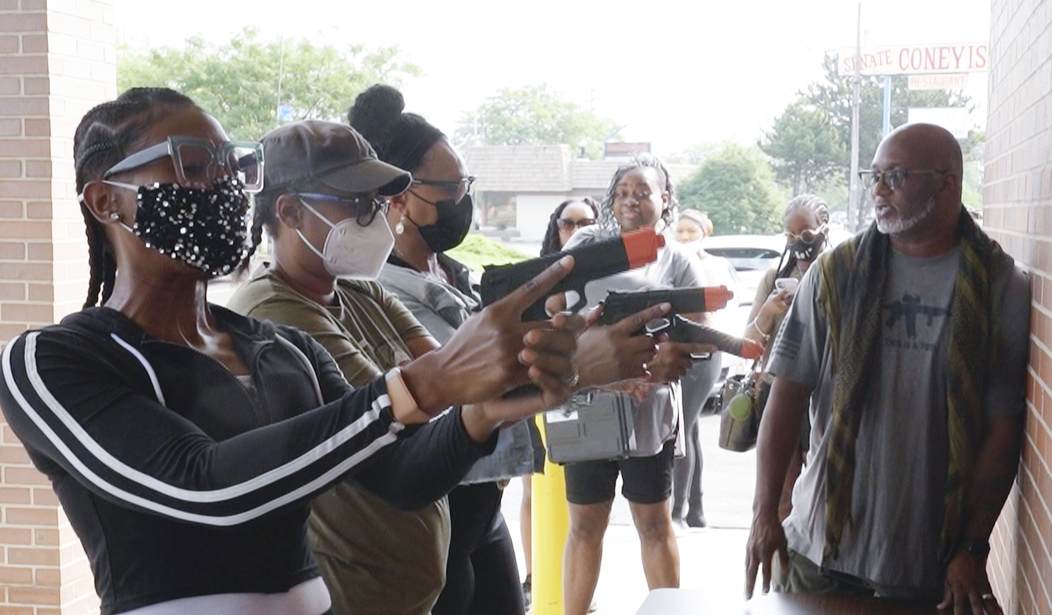We don’t know what exactly the Supreme Court is going to say when it finally releases its opinion in New York State Rifle & Pistol Association v. Bruen, but it’s not just Second Amendment activists who are anticipating a decision that could undo the “may issue” carry laws in the state. Today the Washington Post’s Amber Phillips started prepping the paper’s anti-gun readers for the possibility that the SCOTUS may soon “unravel laws across the nation restricting who can carry guns in public.”
Phillips does a pretty good job of striking a balance in her report by talking to both supporters and opponents of the current law, but given that this is the Washington Post that we’re talking about, there’s still a not-so-subtle sense of doom in her column.
Mostly liberal states like California, Hawaii, Maryland, Massachusetts, Connecticut and New Jersey have similar public carry restrictions, and so do several big cities.
Supporters of these laws argue that they’re necessary in high-density areas, and that the Constitution allows states to govern themselves. “A road-rage incident on the New Jersey Turnpike can quickly become violent,” writes New Jersey state solicitor Jeremy Feigenbaum in Scotusblog. “A fight in Times Square can turn lethal.”
And gun control laws restricting the right to carry only to those who can demonstrate “good cause” don’t prevent those types of crimes. We just saw a shooting on an Oakland freeway; a city that has only a handful of individuals with California Handgun Permits that allow them to carry in public. New York’s carry laws didn’t prevent the mass shooting on a New York subway, nor have they thwarted a rise in shootings in New York City over the past two years. These “may issue” carry laws are stopping people from lawfully carrying a firearm for self-defense, but they’re no impediment to criminals.
As an aside, I found it odd that Phillips ignored the fact that Washington, D.C.’s own “may issue” laws were ruled unconstitutional by a federal appeals court, and the District decided to adopt a “shall issue” regime rather than attempt to defend its law at the Supreme Court. It’s a strange omission, particularly given Phillips’ audience, but I guess that’s a bit of gun control history
Supporters also argue that such restrictions have been around for centuries, underscoring the value society has placed on public safety over gun rights in public places. “It’s not a thing we just came up with yesterday,” said Esther Sanchez-Gomez, a senior attorney with Giffords, an organization which supports gun-control legislation. “So it’s shocking that we are now talking about the idea that people somehow might be safer if our public spaces were filled with guns.”
We’re talking about the idea that people might be safer if they have the means and ability to fight back against their attacker, and this isn’t a new idea. More than 40 states have “shall issue” carry laws on the books that don’t require applicants to show good cause, and 25 of them are Constitutional or permitless carry states that maintain if you can legally own a gun you can lawfully carry it without first needing a permission slip from the state or your local sheriff.
Even when Phillips’ quotes an opponent of New York’s current regime, she makes sure to give gun control advocates plenty of space to respond.
If they rule that New York’s restrictions on carrying a gun in public are unconstitutional, then “across the country, there will be lots of laws that will be invalidated right away,” said Jerold Levine, a New York City lawyer who focuses on gun cases and supports the challenge to this law.
He said it’s likely the court will still allow states and municipalities to deny people licenses to carry guns — “there’s no need to worry that murderers will be getting licenses,” he said — but people won’t have to provide a justification for their application.
Levine called this potential change the “holy grail” of gun rights: “This has been the greatest limitation for gun owners now for over 100 years.”
Sanchez-Gomez said the worst-case scenario for gun-control supporters is in play in this case: It’s possible that the court decides there is a fundamental right to carry guns in public spaces and that there isn’t much governments can do to restrict that.
“As a nation we have a collective trauma about gun violence,” she said. ” … You worry you go to a grocery store and someone night show up with a gun. You worry you are waiting to take a subway to work in the morning and someone is going to show up with a gun.”
Have those restrictions that Sanchez-Gomez is so desperate to keep in place prevented madmen and murderers from showing up at grocery stores or subway cars will illegally-possessed guns that they’re willing and eager to turn on unarmed victims? Not at all. All those laws have done is made it illegal for average citizens in states like California, New York, and New Jersey to protect themselves with a firearm if they’re the subject of an attack. Meanwhile, in states that actually acknowledge the right to keep and bear arms we’ve seen armed citizens act in self-defense at public transportation hubs, convenience stores, and any number of other public locations.
What will change if New York’s subjective and draconian gun permitting scheme is struck down by the Supreme Court? Hopefully it will lead to ordinary Americans in the eight “may issue” states finally obtaining the opportunity to exercise their right to carry, but my guess is that in the vast majority of states the Court’s decision will have little impact; not because what SCOTUS has to say is unimportant, but because they’ll already be in compliance with the majority’s opinion.









